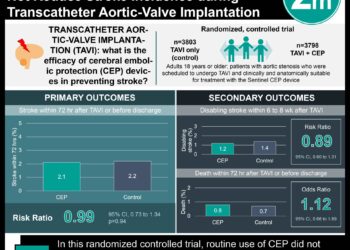Nurses working extended shifts report greater burnout and job dissatisfaction
1. Nurses in European hospitals working shifts of 12 hours or longer were more likely to report job dissatisfaction, dissatisfaction with schedule flexibility, intention to leave their current jobs, and to experience burnout compared to those working 8 hours or less.
Evidence Rating Level: 3 (Average)
Study Rundown: In order to improve the quality and safety of patient care, there has been increased emphasis on work hours within healthcare. While the hours of medical residents in the U.S. have been a topic of discussion and policy change, albeit controversially, nurses in Europe are increasingly working shifts of 12 hours or longer. While this results in fewer handoffs between shifts and is thought to result in fewer errors, the purpose of this study was to determine whether these extended shifts of 12 hours or greater resulted in negative ramifications on the nurses. In a survey of nurses in 12 different European countries, those working shifts of 12 hours or greater experienced increased burnout, job dissatisfaction, dissatisfaction with work schedule flexibility, and reported increased intention to leave their jobs due to dissatisfaction compared to those working 8 hours or less.
This study benefited from its broad inclusion criteria- at least 30 hospitals were enlisted in each of 12 European countries. At least 2 medical/surgical nursing units were included in each hospital but specialized nursing units were excluded due to potential differences in shift patterns. However, the study was cross-sectional, meaning the results cannot be extrapolated to state that the extended shift hours directly caused the adverse outcomes on nurses. Additionally, the survey did not include certain relevant aspects of shift work such as hours worked overtime, opportunity to take breaks during shifts, and total hours worked per week. Overall, while the study suggests that nurses working shifts of 12 hours or longer experience increased burnout and job dissatisfaction, a more rigorous study design would be needed to fully validate the findings.
Click to read the study in BJM Open
Relevant Reading: Nurses’ widespread job dissatisfaction, burnout, and frustration with health benefits signal problems for patient care
In-Depth [cross-sectional study]: There has been increased focus on the work hours of healthcare workers in order to determine whether a certain schedule optimizes the quality and safety of patient care. This study surveyed 31,627 registered nurses in 488 hospitals across 12 European countries about their work hours, extent of burnout, and dissatisfaction with their jobs. Compared to nurses working 8 or less hours/week, those working 12 or more hours/week were more likely to experience high burnout. Specifically, they reported higher emotional exhaustion (adjusted OR 1.26, CI95% 1.09-1.46), depersonalization (aOR 1.21, CI95% 1.01-1.47) and lower personal accomplishment (aOR 1.39, CI95% 1.20-1.62). Nurses working extended shifts were 40% more likely to be dissatisfied with their jobs (aOR 1.40, CI95% 1.20-1.62), 15% more likely to report being dissatisfied with work schedule flexibility (aOR 1.15, CI95% 1.00-1.35), and 29% more likely to report intention to leave their current jobs due to dissatisfaction (aOR 1.29, CI95% 1.12-1.48).
Image: PD
©2015 2 Minute Medicine, Inc. All rights reserved. No works may be reproduced without expressed written consent from 2 Minute Medicine, Inc. Inquire about licensing here. No article should be construed as medical advice and is not intended as such by the authors or by 2 Minute Medicine, Inc.







